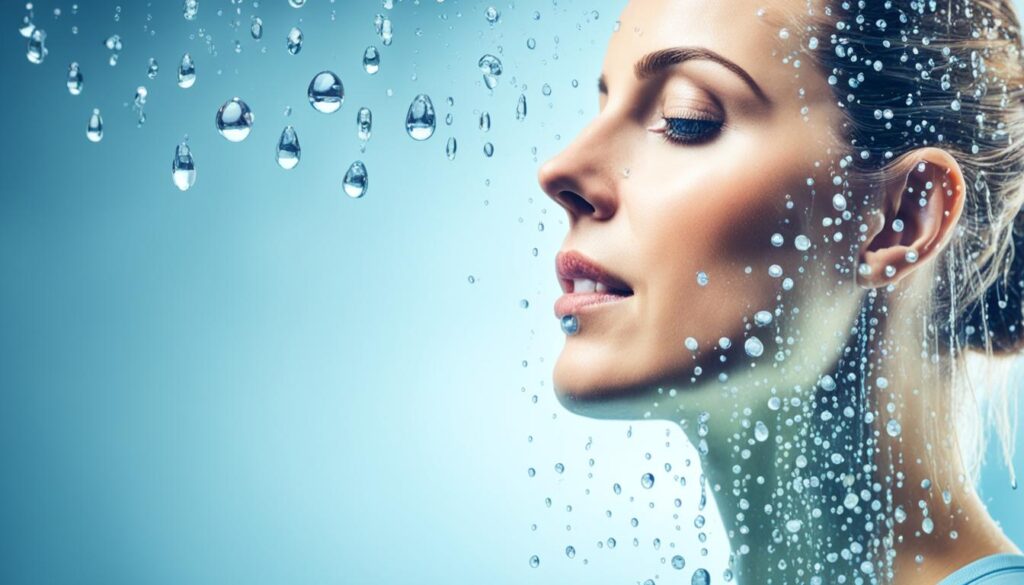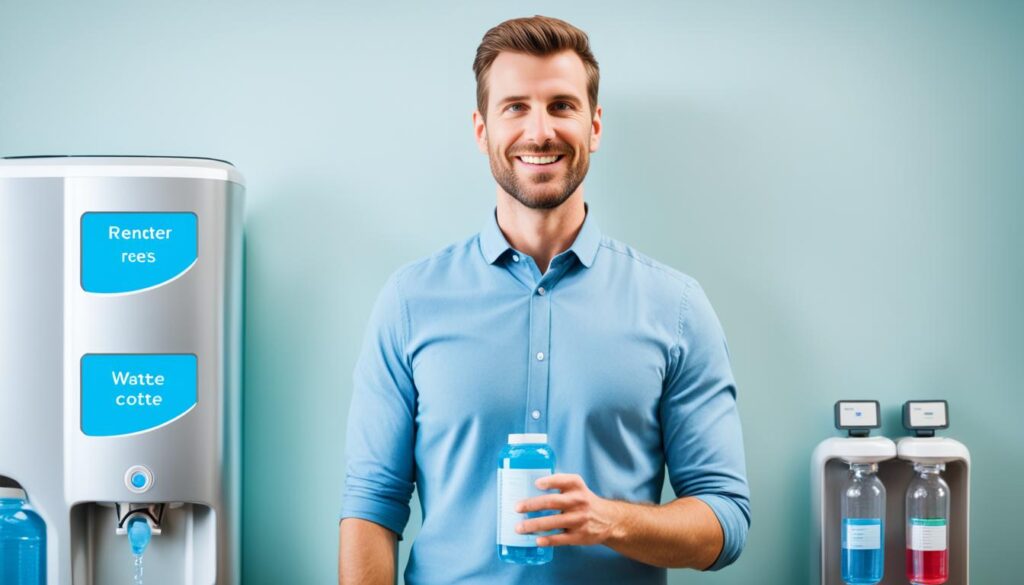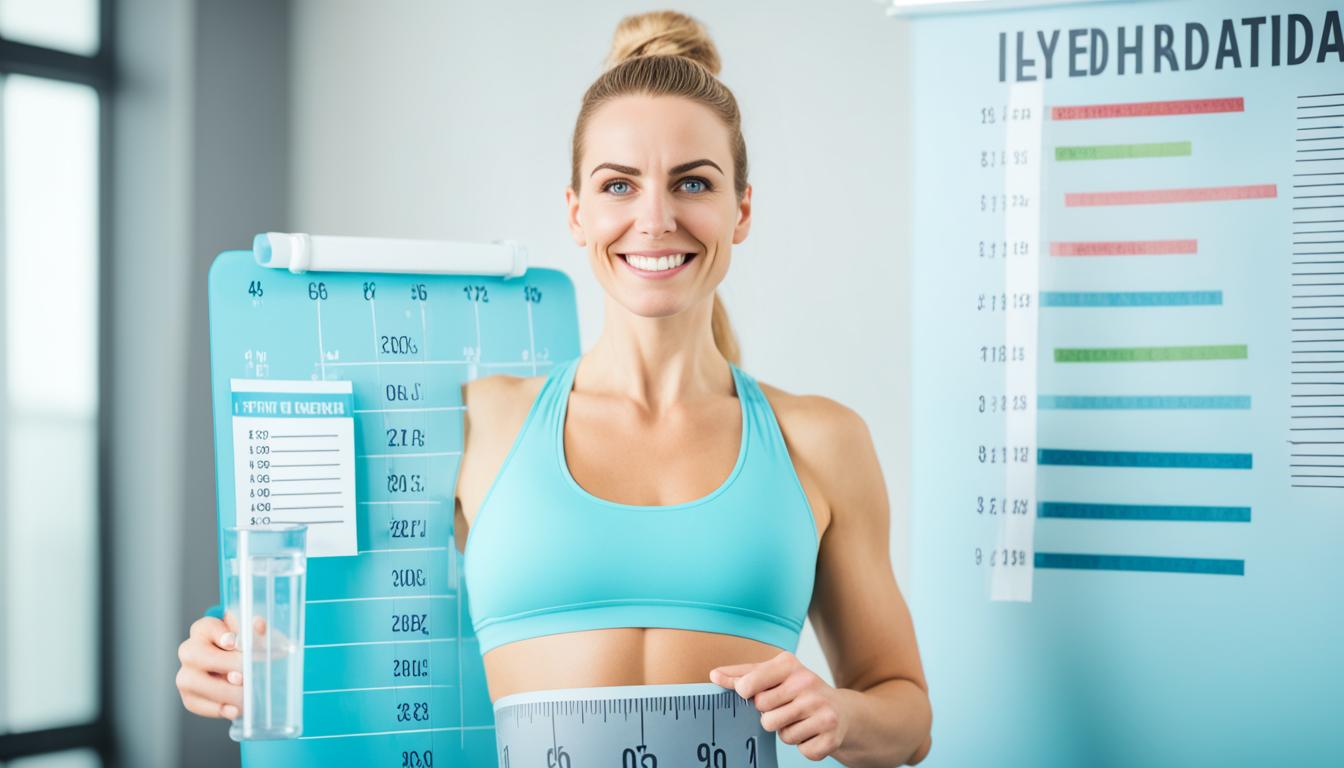Embarking on a journey toward better health often starts with the simplicity of water. Water fasting or a focused water diet can pave the way for significant health advantages, from sharpening mental acuity to aiding in weight loss. This primer on Water Diet 101 unveils how to harness the power of hydration to build a foundation for vibrant health. Contrary to the one-size-fits-all approach of eight glasses per day, individual hydration needs vary, creating a compelling reason to personalize your water intake. Understanding the balancing act of water and electrolytes is crucial; it’s not just about the volume of water ingested but ensuring the right mix for your body’s needs. The multitude of benefits of water diet can be a game-changer for those looking to enhance their well-being and achieve specific water diet weight loss goals.
Ditching the myths for a fact-based approach, this guide offers insights into the essential roles that water plays within the body, advocating for a water diet tailored to one’s unique lifestyle. By recognizing the signals of dehydration, from the color of your urine to the frequency of your headaches, you can preempt many health issues. Surprisingly, the answer to how to start a water diet isn’t found in drastic changes but in the consistent, mindful consumption of water throughout your daily routine. So let’s dive into the fundamentals and set you on the path to a well-hydrated life.
Key Takeaways
- Understand the fundamentals of your body’s hydration needs beyond the eight-glass myth.
- Learn to identify personal hydration requirements based on lifestyle and health factors.
- Explore the substantial health benefits, including cognitive and physical performance boosts from a water diet.
- Acknowledge the warning signs of dehydration, an essential step in crafting a sustainable water diet plan.
- Discover how strategic water consumption can support weight management goals effectively.
- Consider a variety of hydrating options, from water-rich foods to electrolyte-balanced drinks, for a rich and diverse water diet.
Understanding the Fundamentals of a Water Diet
When embarking on a water diet plan, it’s vital to grasp not only what it entails but also the deeper impact it has on the body’s health and well-being. Is water diet safe? The answer lies within an informed approach to hydration. A structured water intake plan plays a crucial role in the body’s functionality, while correcting common misconceptions ensures the safe adoption of a water-oriented lifestyle aimed at enhancing physical health and aiding in weight management.
Defining a Water Diet and Its Purpose
A water diet plan optimizes your hydration strategy to support essential bodily functions and promote health. Far from a mere trend, this diet underscores the clear connection between water consumption and the body’s ability to perform optimally. The essence of a successful water diet is the personalized allocation of water intake to fit one’s specific dietary and health-related goals.
The Role of Water in the Body
Water serves a multitude of functions within the human body, seamlessly integrating into every cell, tissue, and organ. It’s the silent carrier aiding in the elimination of waste, regulating body temperature, and ensuring joints remain lubricated and tissues are sufficiently protected. Such integral roles highlight the need for thoughtful regard to water intake for diet, ensuring each system operates at its best.
Myths and Facts About Water Consumption
Most of us have been tutored on the age-old adage: eight glasses of water per day. However, this is not a one-size-fits-all directive. Actual hydration needs are influenced by factors like diet, activity level, and other beverages consumed throughout the day. It’s time to separate fact from fiction and tailor our water diet plans to align with our body’s genuine hydration requirements.
- Myth: Everyone must drink exactly eight glasses of water daily.
- Fact: Water needs are highly individualized and should accommodate personal lifestyle and health.
- Myth: Water intake alone dictates hydration levels.
- Fact: Foods and other beverages contribute significantly to overall hydration status.
Assessing one’s hydration involves more than tracking the number of glasses consumed. One should monitor urine clarity and frequency, as these are tell-tale signs of hydration levels. It’s essential to absorb these facts to maintain a water diet plan that is not only effective but also safe.
The journey towards optimal hydration is not about adhering to a universal prescription, but rather about understanding and responding to your body’s unique signals and needs. By debunking common hydration myths, you are empowered to create a water diet plan that not only nurtures your body but also supports your overall diet and lifestyle goals.
Why Hydration is Crucial for Your Health
Delving into the realm of hydration reveals its profound impact on our overall well-being. The journey toward optimal health is inextricably linked to how well we maintain the balance of fluids in our body. Not only does proper hydration aid in physical performance and amplify cognitive function, but it is also a key factor in successful water diet weight loss and water fasting practices. Below, we examine the dual significance of hydration and how it serves as the foundation for the myriad of benefits of water diet on both body and mind.
Hydration and Physical Performance
When we exercise or engage in any physical activity, muscle contractions and energy output are at the forefront of performance. It’s hydration that plays the pivotal role in ensuring that these functions operate smoothly. A well-hydrated body can experience enhanced workout quality and expedited recovery times post-exercise. On the flip side, the lack of adequate fluids can result in fatigue, decreased strength, and even muscle cramps. Proponents of a water diet for weight loss understand that consistent hydration can enhance the results of their fitness efforts, ultimately contributing to better health outcomes.
Hydration and Cognitive Function
The brain’s functionality is also highly dependent on hydration levels. Cognitive skills like memory, attention, and the ability to process information are compromised when the body is dehydrated. A state of optimal hydration, on the other hand, can improve focus, mood, and alertness. The importance of hydration extends to counteracting the troublesome symptoms of dehydration such as headaches and overall fatigue, highlighting the direct benefits of the water diet on our mental capabilities.
Indeed, the vitality of a well-hydrated state cannot be overstated. Whether you are looking to enhance your athletic performance, keen on boosting your mental sharpness, or embarking on a journey of water fasting for healthful living, embracing a hydration-centric lifestyle is essential. It is the invisible fuel that keeps the gears of our physical and mental faculties running smoothly, and a critical component of a balanced, health-conscious regimen.

It becomes abundantly clear why hydration should be a top priority in our daily lives. As we continue to explore the world of water diets and fasting, remember that the investment in hydration pays dividends in the currency of health, leaving you richer in vitality and wellness.
Personalizing Your Hydration: How Much Water Do You Need?
Every individual’s water requirements are as unique as their fingerprint. Crafting a water diet plan requires a nuanced understanding of an array of factors that influence how much water you should drink. As you learn how to start a water diet, remember that personalization is key. It’s not simply about hitting an arbitrary target; it’s about heeding your body’s unique demands for water—your personal liquid asset.
Factors Influencing Individual Hydration Needs
Your daily water intake for diet and hydration is affected by various aspects of your lifestyle and environment. From the intensity of your workout sessions to the climate you live in, from your overall health to the diet you follow, each of these elements plays a critical role. Staying mindful of how these factors contribute to your hydration will help you to fine-tune your water consumption.
| Factor | Impact on Hydration |
|---|---|
| Exercise | Increases fluid loss through sweat, requiring more water intake. |
| Environment | Hot, humid, or dry conditions can heighten the need for fluids. |
| Health Conditions | Certain medical issues may necessitate additional hydration. |
| Diet | High-salt diets, for example, can lead to greater fluid needs. |
Understanding the Symptoms of Dehydration
Dehydration is a surreptitious foe, often disguising itself until noticeable symptoms arise. The most straightforward indicator is the color and odor of your urine. Pale straw or light yellow urine typically signifies good hydration, whereas dark yellow can ring the alarm bells for potential dehydration. Let’s decode the signs that can help keep you in the safe hydration zone.
- Urine color ranging from light to dark yellow.
- Sudden onset of thirst or dry mouth.
- Feelings of dizziness or lightheadedness.
- Unusual tiredness or fatigue without cause.
- Decreased urine output or infrequency.
Being attuned to your body’s signals will empower you to adjust your fluid intake wisely, ensuring you remain well-hydrated throughout your water diet journey. Whether you’re seeking weight management or trying to elevate your wellness, understanding your hydration needs is a critical step.

Optimizing Your Water Intake for Dietary Success
Embarking on a water diet can be a transformative journey toward weight loss and enhanced health. Understanding how to start a water diet is the first step toward amplifying the multiple benefits of water diet regimens which include kick-starting metabolic processes and using water as a natural appetite suppressant. A precious ally in your wellness arsenal, water fasting can be an effective method not only for detoxification but also as part of a sustainable approach to weight management.
Creating a routine that emphasizes drinking water before meals can help prepare the digestive system, ensuring you eat only what your body requires, key to successful water diet weight loss strategies. Hydration also takes center stage during physical activity; thus consuming water between meals and while exercising proves instrumental in maintaining optimal bodily function and ensuring a steady progress towards achieving your dietary goals.
Water, however, is not the sole vehicle for hydration. Incorporating an array of fluids like herbal teas and hydrating foods such as cucumbers, strawberries, and leafy greens into your diet presents a palatable array of options. These food choices are naturally rich in water and crucial electrolytes that seamlessly support your water diet plan, providing a delectable and diverse way to stay hydrated while you enjoy the benefits of water diet endeavors.




